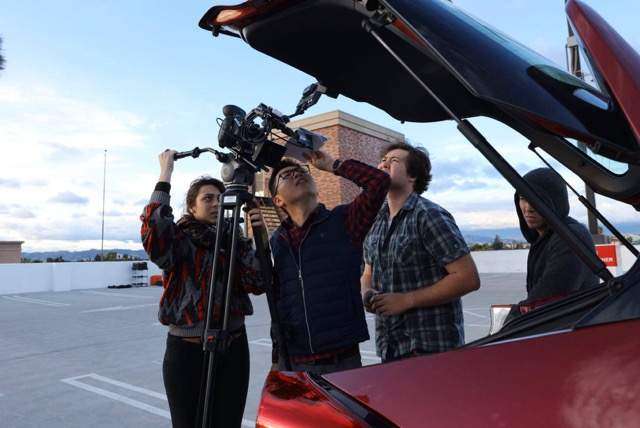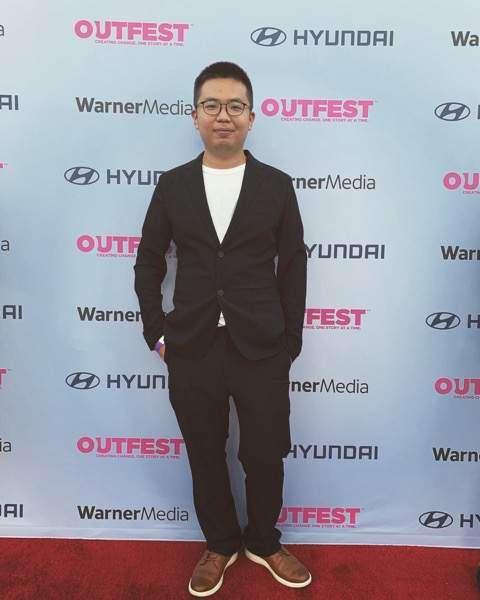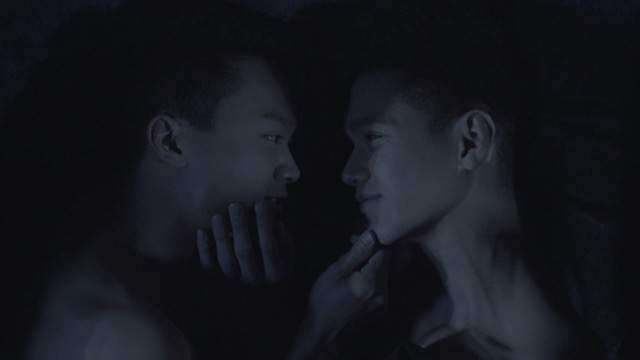
It’s impossible to separate great art from honesty. Graduation is a film that ironically delivers this quality in spades from its creators while the characters themselves are void of it; an aspect which only serves to intensify the mood of its story. Director Robin Wang confides, “I wear my heart on my sleeve for this film. As a Chinese LGBT individual, I have been asked by elders and relatives countless times when I am getting a girlfriend or get married. Out of politeness, I only respond with a smile but deep down, my heart sinks. I hope so much that I can share with them the pains and joys of being someone they will probably never understand but in the end, I would just swallow it and keep who I truly am a secret. From this broken heart came the idea for ‘Graduation.’ The plot was inspired by my own graduation experience at Duke University in 2019.” At a time when the industry has recognized the need for diversity in storytelling, Graduation achieves this in so many ways. It touches on the cultural differences between China and the US as well as the generational ideas of parents and young adult children. The heart of this film is a love story that is complicated by so many factors that it’s hard to imagine these two young men finding a future together. Graduation has universally been praised during its film festival run. An official selection of the World’s biggest LGBTQ Film Festival LA Outfest (OSCAR and BAFTA-qualifying, screened at Director’s Guild of America), Urbanworld Film Festival (OSCAR-qualifying), Out on Film, Atlanta (OSCAR-qualifying), deadCenter Film Festival (OSCAR-qualifying), Outfest Fusion (the World’s biggest QTBIPOC film festival), and others, Graduation received nominations and awards from the Oregon Short Film Festival, Key West Film Festival, and the Chinese American Film Festival.

Wizz, a young man preparing to graduate college, is oppressed with the question of whom he wants to be and whom others expect him to be. The dinner scene which opens this film establishes this profoundly. His love for Caleb (the other teenage boy at the table and Wizz’s romantic partner) is as hidden as Wizz’s desires for what he wants his life to be. The warm red, orange, and gold hues are taunting in this scene; implying success and security while the silence of these young men speaks to their confinement by society. Later, when Wizz and Caleb sit on a rooftop openly expressing their desire for a future together, the expanse of the sky alludes to the seemingly endless possibilities for positive & negative outcomes. The director continually makes exceptional use of the surroundings to intensify the mood of the characters in this film. Even after their lovemaking in the car, it almost feels as if the automobile is a cocoon for Wizz; on which he is resistant to leave because it means leaving much of what he knows behind him as he embarks on a new journey and a more concrete identity.

Much of the bittersweet comedy of this film is delivered through Wizz and Caleb’s parents (unmarried to each other) Xudong and Mingyi. The two had a romance many years ago until Xudong moved to America seeking success. They rekindle their passion while the boys are out “at a movie” and it’s here that the concept of “love lost” is reinforced. Xudong and Mingyi are as oblivious to the love between their sons as they are to losing their own relationship so many years ago. They seem passively obedient to the forces around them and this is the component that cultivates anxiety in Wizz.
Graduation is a film that can speak to anyone. It’s about love and the concern of a young person who grapples with what the unknown future will become. Will the generation before you dictate the choices you make or will you risk bruising the relationships of your family to become the person you truly are? Still, Robin Wang finds his greatest comfort in a specific audience’s reaction. He professes, “This is an incredibly personal story and I am especially gratified by how much the two communities that I care about the most, the LGBT community and the Asian American community, appreciated this film. The subject of APIQ (Asian Pacific Islander Queer) has been such a rarity in mainstream Hollywood media and the recognition that this film received showed me that the story of our community matters and has the power to move the world. In addition, making a comedy is always rewarding. I remembered that during our screening at the Director’s Guild of America Theater at Outfest, the entire room burst into laughter throughout the movie. Watching a room laugh with you is a very visceral experience. It shows how the film manages to entertain its audience in a sensational manner and how much they enjoy the work you’ve done.”
Writer: Coleman Haan